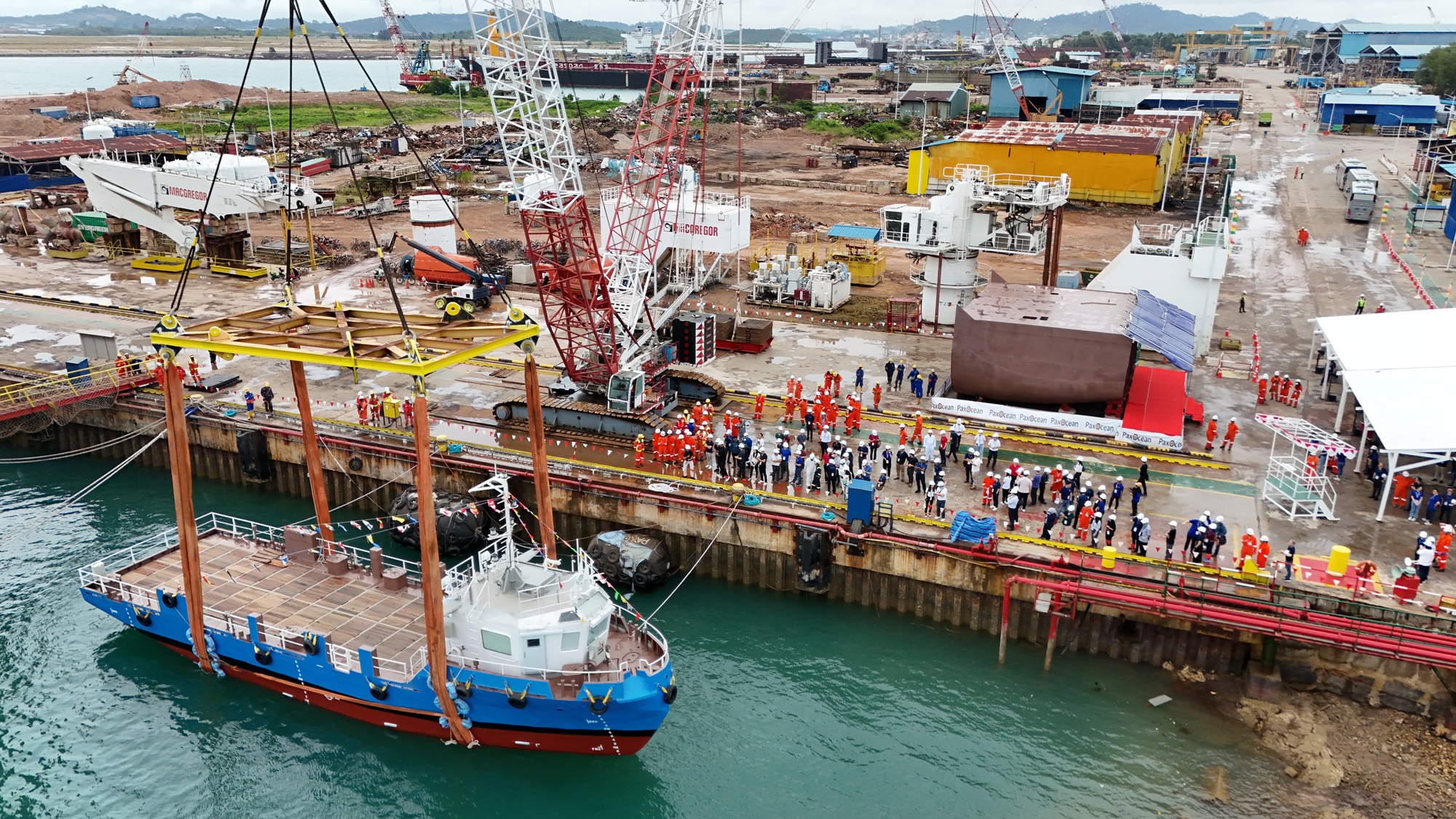SINGAPORE: On February 5, Singapore witnessed a pivotal step towards decarbonizing its maritime industry as the Coastal Sustainability Alliance (CSA) launched its first fully electric harbour supply boat and initiated the construction of its first fully electric tug at PaxOcean Batam. According to Riviera News, these innovations mark a key milestone in Singapore’s drive to have all new harbour craft fully electric or compatible with net-zero fuels by 2030.
A new era for harbour craft design
The PXO-EXL-1 electric harbour supply boat is one of the first and largest of its kind, specially designed to operate in Singapore’s coastal waters. Developed through a collaboration between the Technology Centre for Offshore Marine (TCOMS) Singapore and the Singapore Institute of Technology, the e-supply boat was selected from the Maritime and Port Authority of Singapore’s (MPA) Expression of Interest for innovative electric harbour craft designs. This 26-meter vessel boasts impressive specifications, including two 500-kW lithium iron phosphate batteries capable of propelling the boat at speeds of up to 8 knots and allowing it to travel up to 80 nautical miles on a single charge.
The vessel’s efficient hull design delivers up to 60% energy savings compared to conventional lighter vessels, offering significant cost and carbon emission reductions. With the capability to carry up to 40 tons or 60 pallets, the PXO-EXL-1 is set to revolutionize marine logistics while minimizing environmental impact. The CSA plans to trial this electric harbour supply boat in the second half of 2025, with the construction of the electric tug slated for completion by the first quarter of 2026.
Innovation and sustainability
Meanwhile, the PXO-ACE-1 electric tug is also poised to make a lasting impact on Singapore’s maritime operations. Designed with a 50-tonne bollard pull, this advanced vessel will feature two 1,500-kW lithium titanate oxide batteries and cutting-edge battery management systems. Utilizing digital twin models, researchers are rigorously testing the tug’s capabilities to ensure it meets operational requirements within Singapore’s busy ports.
The electric tug is also future-ready, as it is designed to be compatible with zero-carbon fuels, ensuring its adaptability for long-term sustainability. This development is supported by the MPA’s Maritime Innovation and Technology Fund and aligns with Singapore’s broader strategy to transition to greener technologies across its maritime sector. The e-tug will be operated by Pacific Workboats and is slated for deployment at Jurong Port.
Building a green supply chain for Singapore’s maritime industry
The launch of these electric vessels underscores Singapore’s commitment to creating a sustainable maritime ecosystem. As part of the CSA’s vision, the country is building a green supply chain with a focus on local sourcing and collaboration. More than 50% of the components for these electric vessels will be sourced from local suppliers, including Sea Forrest Power Solutions, which provides critical elements like motors, batteries, and battery-management systems for the e-supply boat.
Tan Thai Yong, managing director and CEO of PaxOcean Group and CSA chair, highlighted that these electric vessels demonstrate a tangible commitment to decarbonizing Singapore’s coastal logistics ecosystem. Kenneth Lim, assistant chief executive at MPA, further emphasized that the successful development of these vessels reflects the strong collaboration between industry and research bodies to advance maritime decarbonization.
With the combined efforts of the CSA members and other stakeholders, Singapore is well on its way to building a greener, more efficient maritime sector that aligns with global sustainability goals.

